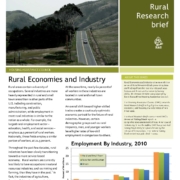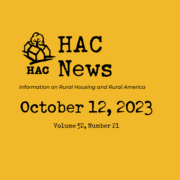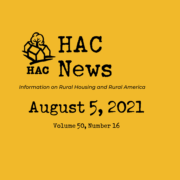Discussion Paper, Next Generation
RECRUITING AND RETAINING THE NEXT GENERATION OF RURAL HOUSERS
 Continue the Discussionby Matt Huerta, Neighborhood Housing Services Silicon Valley, CA, and Karen Jacobson, Randolph County Housing Authority and Highland Community Builders, WV
Continue the Discussionby Matt Huerta, Neighborhood Housing Services Silicon Valley, CA, and Karen Jacobson, Randolph County Housing Authority and Highland Community Builders, WV
Background
Public and private investment is increasingly being focused in urban or suburban neighborhoods while rural areas continue to have high needs for infrastructure support in housing and other basic services. It can be exceedingly challenging to compete for talent with our urban counterparts. Meanwhile, our current workforce is aging and many rural areas are experiencing a “brain drain” of college educated residents. The young professionals that we have been fortunate enough to recruit can be equally challenging to retain. Rural housing professionals typically work across many disciplines and program areas in order to develop their projects and programs. Within a few short years, rural housing professionals have acquired unique but transferrable skillsets. These could include developing financial pro formas, managing projects, navigating land use entitlements, leading community engagements, and many other highly specialized and valuable skills. It is important for rural housing organizations to retain these competencies for as long as possible. How do we recruit, nurture, and maintain rural housing professionals, particularly in an environment that seems hostile to our mission?
Issues and Challenges
Most, if not all, rural housing organizations aspire to have workforces that reflect the diverse populations within the communities they serve.
This is critical to maintain credibility and program impact. Many rural groups continue to experience challenges in recruiting and retaining talented staff who may be drawn to positions in urban areas because of the potential for higher earnings, a perception that “rural work” is less important or innovative, and better access to training programs or networking opportunities. Once young professionals acquire some initial work experience or complete their advanced degrees, what will incentivize them to stay at a community organization focused on rural housing?
Discussion Questions
- What specific challenges is your organization experiencing with recruiting or retaining younger professionals?
- What is your organization doing to address this critical issue?
- What are some examples of model recruitment tactics or training programs that can be replicated?
- Are there community-wide efforts that rural housing groups can join or initiate that would help address this challenge? Housing organizations are not the only employers that are affected by “rural brain drain.”
- What role might a local college, community college, or university play in solving this issue?




